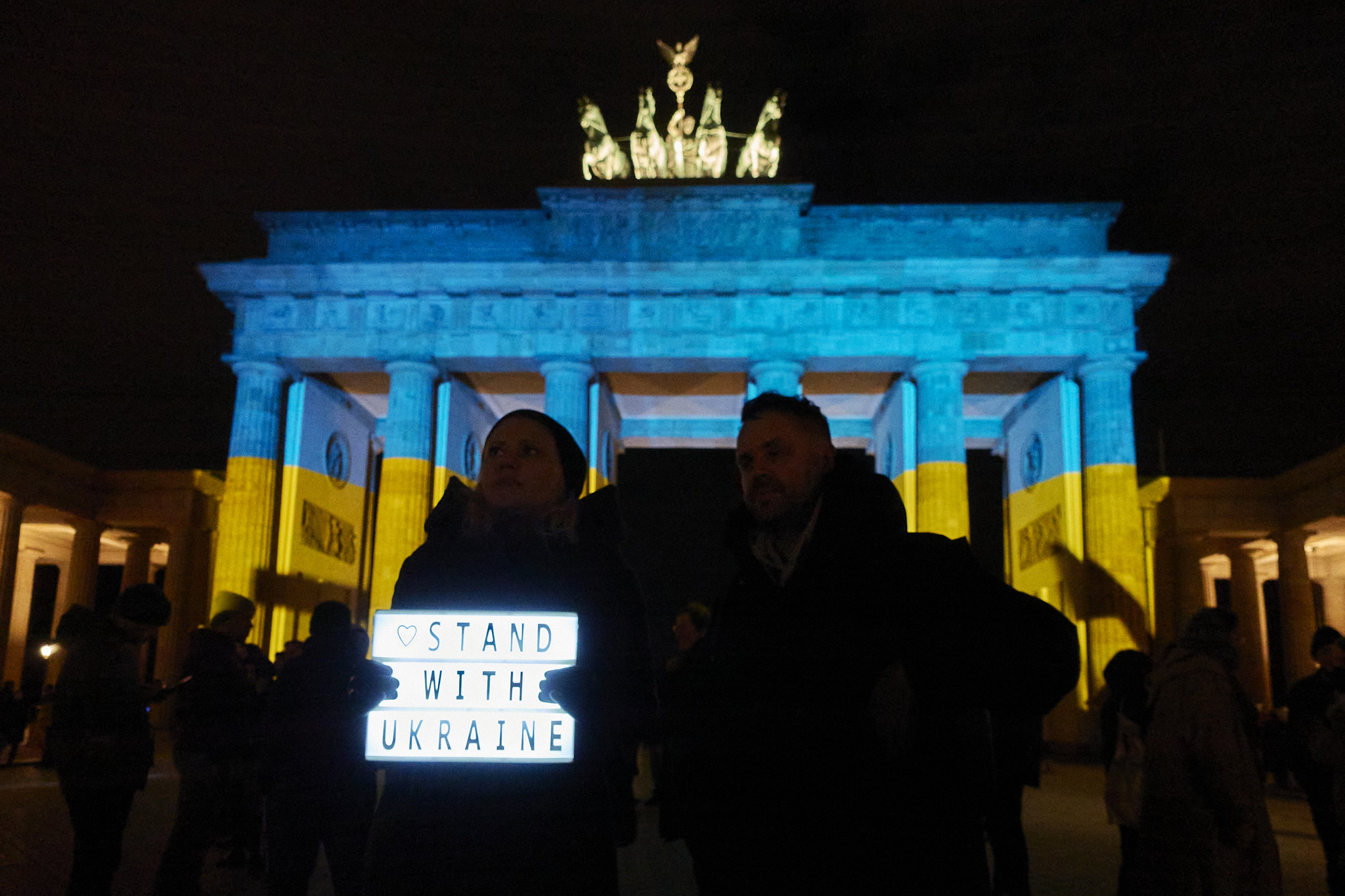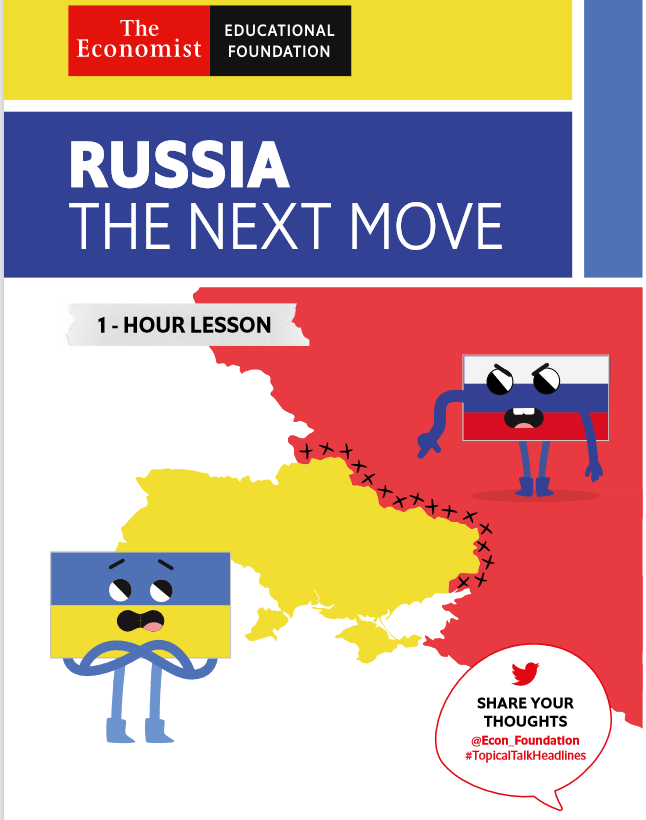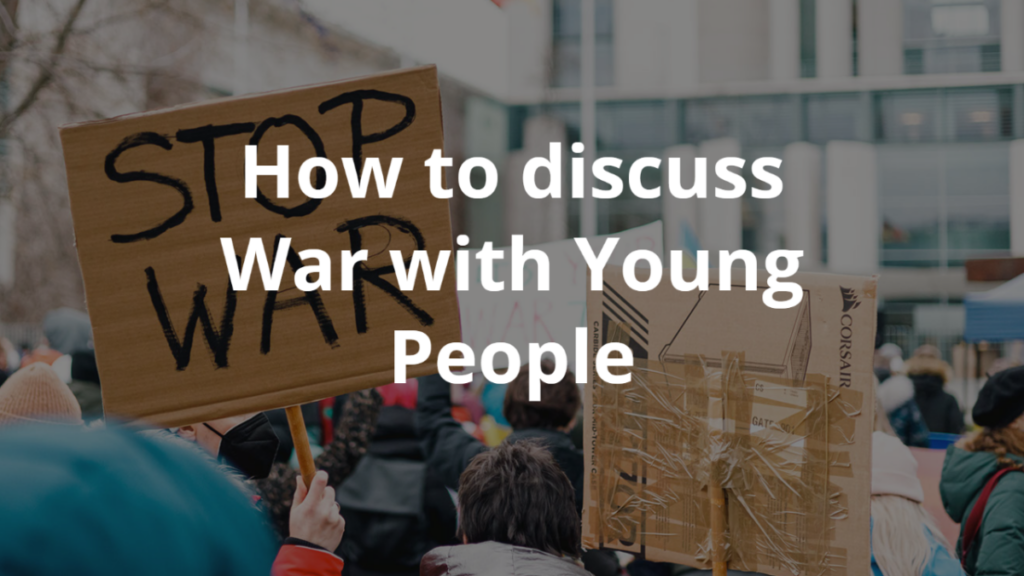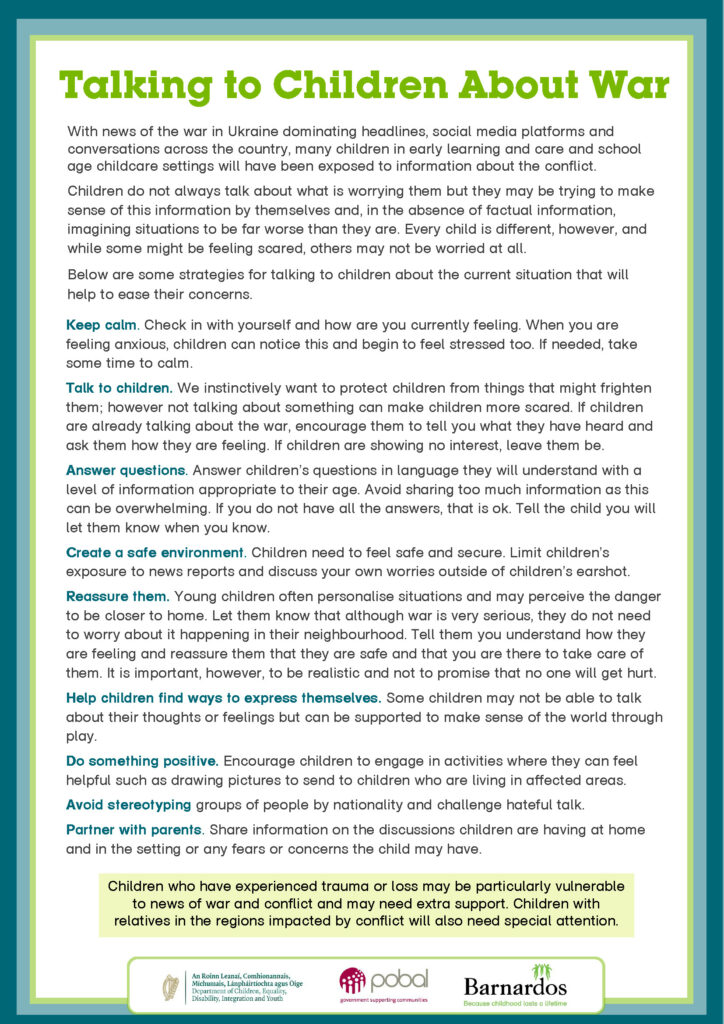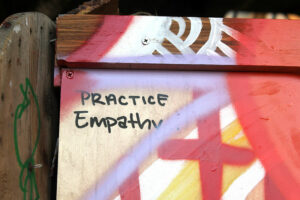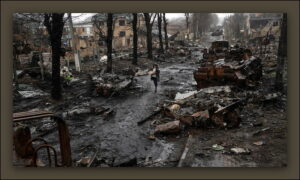Protest against Russian military aggression in Ukraine on February 23, 2022 by Matthias Berg via Flickr (CC-BY-NC-ND 2.0)
As the World watches the horror unfold, it is extremely difficult to comprehend or make sense of what is happening to our fellow human beings in Ukraine. In real time, we are all watching, reading, listening and consuming media and information through our TVs, radios and smart phones. We have seen such images all too often of late. Eerily similar images of war from Syria, Afghanistan, Yemen and Palestine, to name but a few.
Numerous collections have been arranged all over Ireland through schools, parishes, GAA clubs, community groups and beyond, to gather everything from medical supplies, to nappies, to pet food to be delivered to Ukrainians as they flee with their lives from the lives they once knew. Hundreds of thousands of Euros (if not more) have been donated to UNICEF, the Irish Red Cross, Concern and more. While this flurry of activity continues around us, it is important that we process what is happening, especially with young people who may be experiencing fear, anxiety, helplessness and more as they inevitably either wish to learn more or are exposed to details of the invasion of Ukraine by Russia.
We hope this short list of 6 resources that we have compiled (and will continue to add to) will assist teachers, educators and parents to have conversations with those they work and live with in a mindful and empathetic manner, all the while unpacking the heavy issue of war and conflict.
1. Resources round-up
The Guardian have compiled a comprehensive article on news and teaching resources on the Ukraine crisis. From visual data focusing on the end of the USSR, to graphics on the military imbalance between Russia and Ukraine, to live coverage and updates, the Guardian has a wealth of information, visual and textual. The article also offers activities from their Teacher Network.
2. Understand why Russia and Ukraine are in the news and what might happen next.
Russia: The Next Move from the Economist Educational Foundation is a very practical teaching resource from their ‘Topical Talk‘ series, where they focus on a different headline each week. While you must create an account to access the resources, it is completely free and you are sent a newsletter once a week with extremely high quality resources.
Within this specific resource, there are videos explaining the current situation in Ukraine and Russia and what could potentially happen next. There is a lesson plan with objectives, skills developed, teacher instructions, storyboards and more.
There is an interactive quiz also, and polls for voting where those involved can share their answers and engage in discussions with others.
This is all written in an engaging and accessible way.
3. History, empathy, balance and action.
Global Dimensions, a UK based website who provide teaching resources which bring global connection, conversation and compassion to the classroom have done an ‘In Focus’, piece on Ukraine and Russia.
They explore why it matters to look at these issues, the connections to the curriculum (though they are based in the UK, this is done in a way which could be easily translated to Irish curriculum), and how to approach it (giving a sense of history, empathy, balance and the opportunity for action). They also provide onwards links to resources and teaching packs which may assist.
4. The mindful approach
From developmenteducation.ie consortium partner, the National Youth Council of Ireland, we have How to Discuss War with Young People. While this has been compiled in the context of Ukraine and Russian, this guide takes a generally useful and mindful approach to the topic. It’s aim is to equip youth workers with the tools they need to acknowledge what is happening with young people and provide a safe space for discussion.
NYCI have also included activities to assist in the unpacking of issues of conflict and peace, further resources that may be of help and actions that can be taken.
5. Ease the weight on young shoulders
It is inevitable that younger children will be exposed to information about Ukraine and may be trying to make sense of it by themselves.
Children’s rights NGO Barnardos have compiled a simple, effective and accessible document on talking to children about war. It is important we support our youngest members of society by giving them a safe space to share concerns they may have.
6. For the budding journalists
BBC Newsround have a detailed timeline from 1991 and the end of the Soviet Union, presented in an extremely accessible manner covering ‘whats happening in Ukraine?‘.
Using an array of videos and pictures, it covers how we have ended up where we are now and is presented in accessible manner for viewing on mobile phones.
Want to recommend other resources for as part of updating this starter guide? Send us your suggestions, links and resources on learning about conflict, war and peace issues that are relevant to the current crisis in Ukraine.

